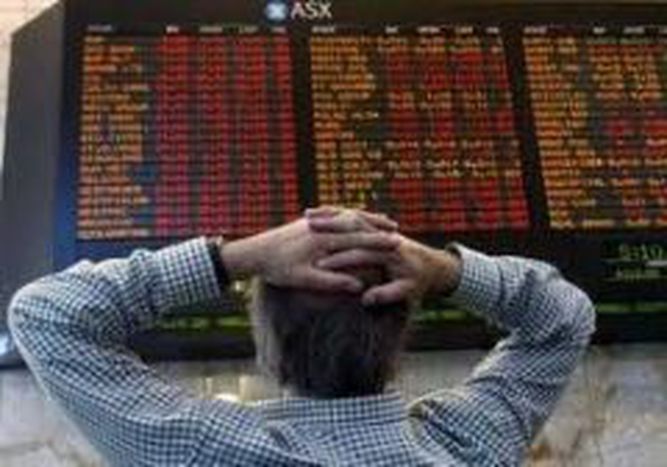
"Financial anarchic-capitalism?": a pedagogical interview before the next summit
Published on
By Cristina Mariani After the last Eurogroup meeting, on 30th December, Commissioner Olli Rehn, in charge of Economic and Monetary Affairs, warned Eurozone governors to complete the crisis response of the European Union within a 10-days period of time, or they will have to face the risk of the disintegration of the European Union itself.
On the 8-9th December, EU leaders will meet again for another urgent “make or break” summit. In addition to the signing of the Croatian accession treaty, they will review the overall economic situation in Europe and try to reach a consensus to prevent bailout contagion. “Apocalypse Euro”?
During the last Business-20 - a forum that takes place alongside the G-20 summit - the Argentine President Cristina Fernandez de Kirchner called for regulation of markets. “What I am proposing”, she said, “is a return to capitalism seriously, because what we are living, gentlemen, is not capitalism. This is a total financial anarchic-capitalism, where nobody controls anyone”.
In this scenario, it is actually ‘Mr Spread’ ruling the Eurozone debt crisis. Hei is sparking off anxiety of a default contagion, leading long-standing leaders agree to resign and pressing new technocrats to quickly adopt strict measures to rescue the country. But who is ‘Mr Spread’? Andreas Pilger, project manager in investment banking, gives us answers.
Andreas Pilger: The famous spread is the gap between a German government bond and a government bond of any other Eurozone government. If a German 10-year bond gives an investor a 1.7 per cent interest rate and a French one 3.2 per cent, we have a significant spread. If you believe in France as a country, that is not a bad deal. The problem is related to the fact that the rise in interest rates - reflecting investors’ fear of the country’s possible default – increases, in cycle, the risk of France defaulting on their payments. Hence, while on the one hand French government bonds are more attractive, on the other, credit standing and reputation of France decreases.
Cafebabel: But why is Germany the benchmark country? Why Italian bonds for example have to be always compared to the German bond?
Andreas Pilger: This is because the German economy has always been considered the most stable amongst the Euro countries. Therefore, German bonds are considered the safest. This is however a relative measure. Looking at nowadays situation, if the German bond yields rise, the spread becomes smaller, but this however does not necessarily mean that Italy for example can then borrow money cheaper.
Cafebabel: So what are the determinants of the yield differentials?
Andreas Pilger: If a country has to pay a higher yield for its bonds, it means that investors demand for a higher risk premium. This is true for any kind of bond or loan. The more likely the issuer is to default, the more it has to pay to its lenders.
Cafebabel: What are the main effects that such significant bond differentials may cause?
Andreas Pilger: Bearing in mind the difference in risk associated with different countries and market behaviour, you can see the following. Investors will tend to invest into safer bonds, like the German bond, rather than the riskier ones especially given the current economic crisis (although the last bonds’ auction on 23rd November showed that even bonds are starting to lose their appeal). Some market players will also try to profit from the situation and speculate on those spreads, like hedge funds and banks that speculate on differences in the ratings of bonds. If they bet that the fear for Italian bonds increases, Italian government bonds lose in value much more than German ones, causing then the increase of the yield difference between the Italian and German bonds. In this context, hedge funds may try to take advantage of the situation by short selling or selling insurances, putting Italian bonds under even more pressure and making the cost of financing public debt to rise. In conclusion, refinancing through government bonds becomes more expensive and the debts increase further.
This shows that financial markets judge the decisions and the behaviour of our leaders and are influenced by future expectations. Investors prefer determination, they require credibility, they force the implementation of austerity measures. What we need is to have political leaders being able again to take and implement decisions, and not to be driven by financial speculators.
For the rest, there is always the possibility to write a wish-list letter to Santa Claus. Christmas is not so far away.



